25 Silent Signs Your House Is Falling Apart
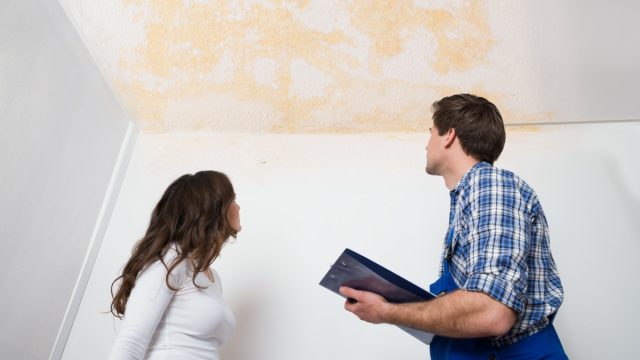
Your house is more than just where you rest your head at night; it’s a place of comfort, somewhere you’ve made countless memories, and an investment you’re likely intent on maintaining. However, there are numerous signs of trouble in your house that even the most eagle-eyed folks may miss—and they could lead to seriously expensive repairs down the line.
From indications of foundation issues you might mistake for something else to evidence you’ve got a mold problem, we’ve teamed up with experts to bring you these surefire signs your house is falling apart. And if you want to protect your home, check out these 23 Bad Home Design Choices That Cause Damage.
1
The earth around your home is sinking.
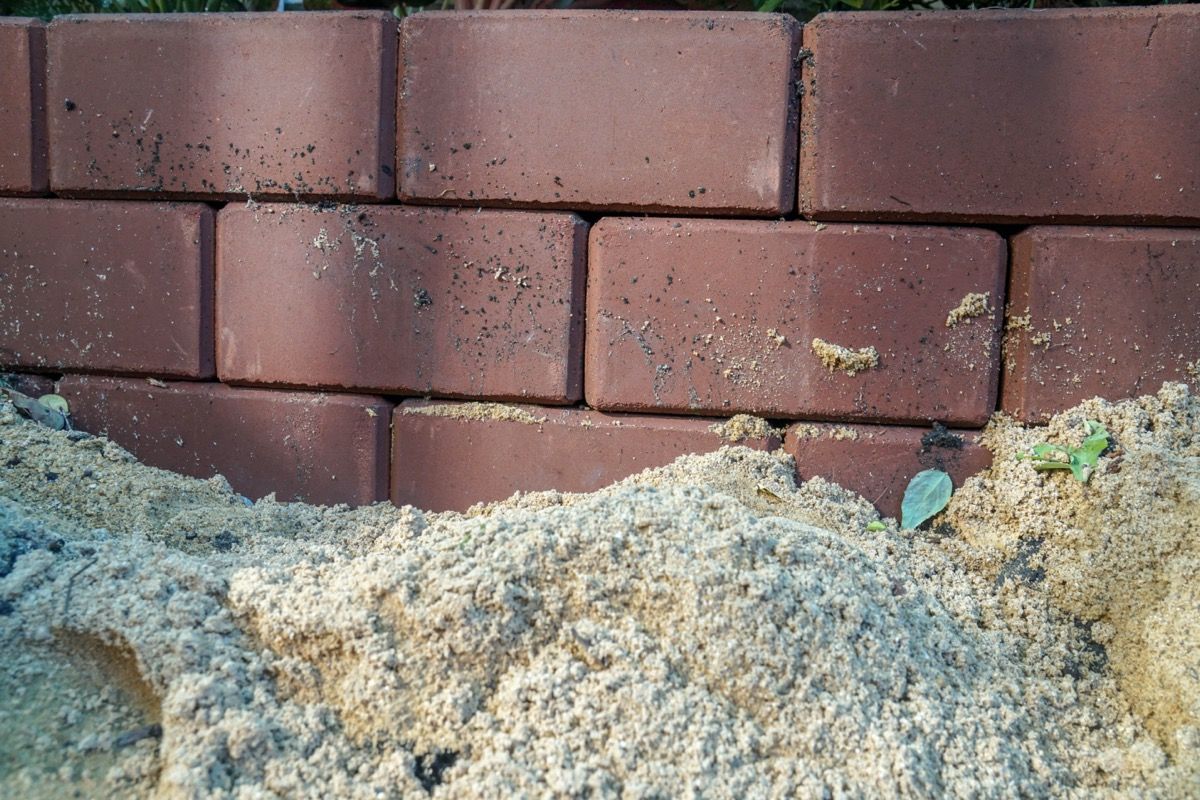
That smushy soil perimeter around your house or patio isn’t just a sign of poor landscaping—it could mean that a serious water leak or drainage issues are at play.
Unfortunately, this could mean big repairs are on the horizon. “Serious structural damage could occur depending on where soil is eroding, so it’s best to have a contractor, architect, or landscape architect provide an analysis,” explains architect Colin Haentjens, a designer with The Knobs Company. And if you’re ready to make over your space, start with these 27 Amazing Ways to Upgrade Your Kitchen Without Remodeling.
2
Your walls are uneven.
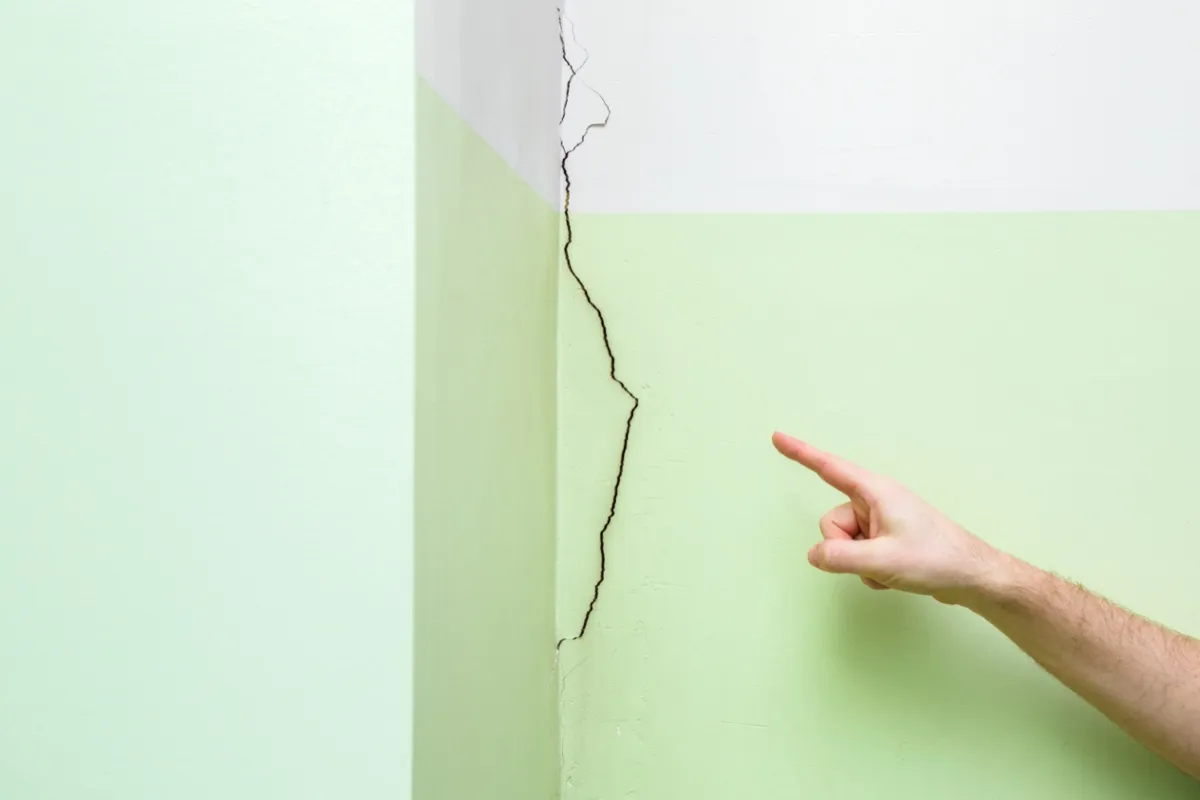
Old homes have all kinds of quirks, but uneven walls shouldn’t be among them. According to real estate investor and rehabber Robert Taylor, owner of The Real Estate Solutions Guy, uneven walls can be a sign of a foundation issue—or a sign that an unscrupulous builder has tried to ineffectively fix the problem.
Taylor says that some builders will “pour a thin layer of concrete on the floor to level the portion of the floor that’s lower” due to foundation issues, resulting in even floors, but uneven walls.
3
Or they look warped.
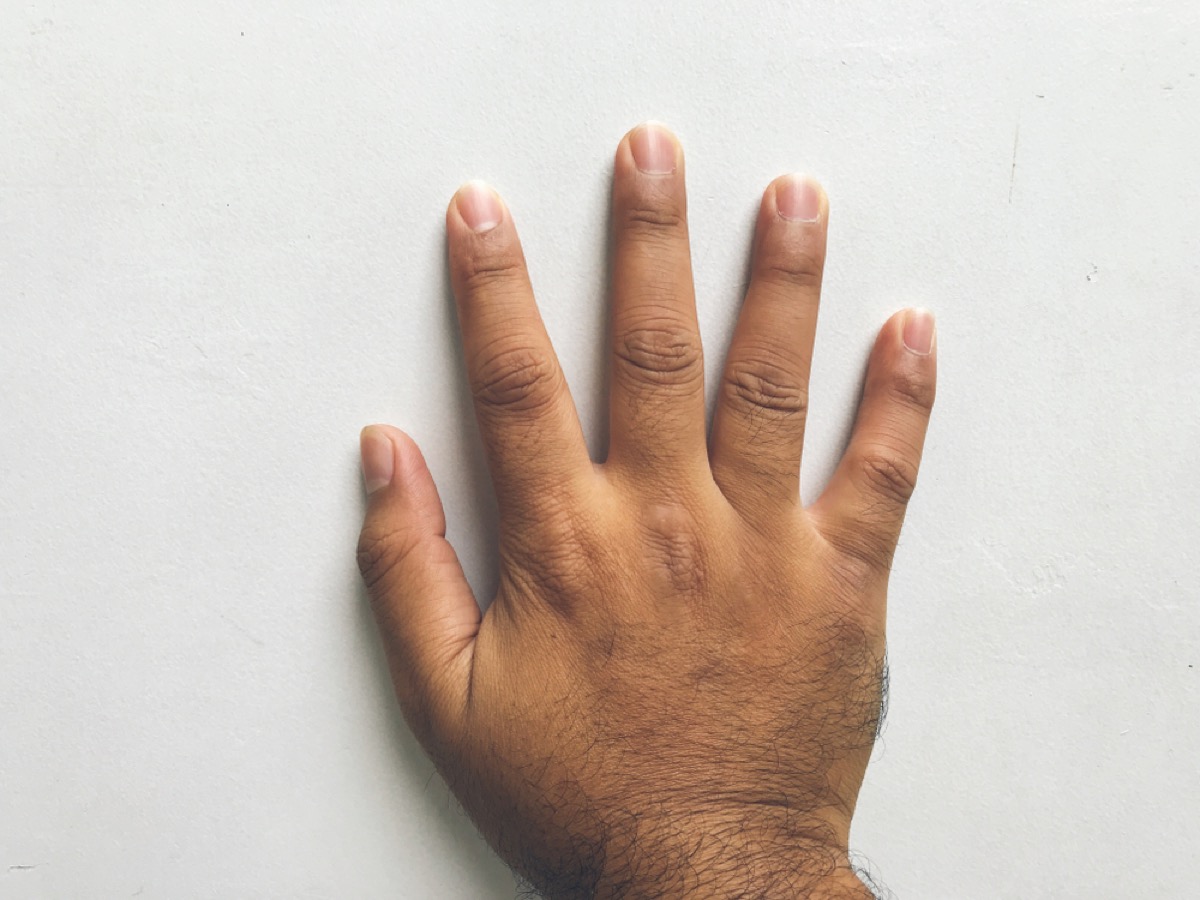
Warped walls are frequently a sign that your drywall has absorbed water and is swelling. “Over time, the damaged area starts to crumble, especially around the baseboards,” says Jack White, vice president of technical services at Rainbow International, a Neighborly company that specializes in treating water, fire, and mold damage. If your wall feels significantly uneven to the touch, it’s time to call in a professional.
4
Your floors slope.
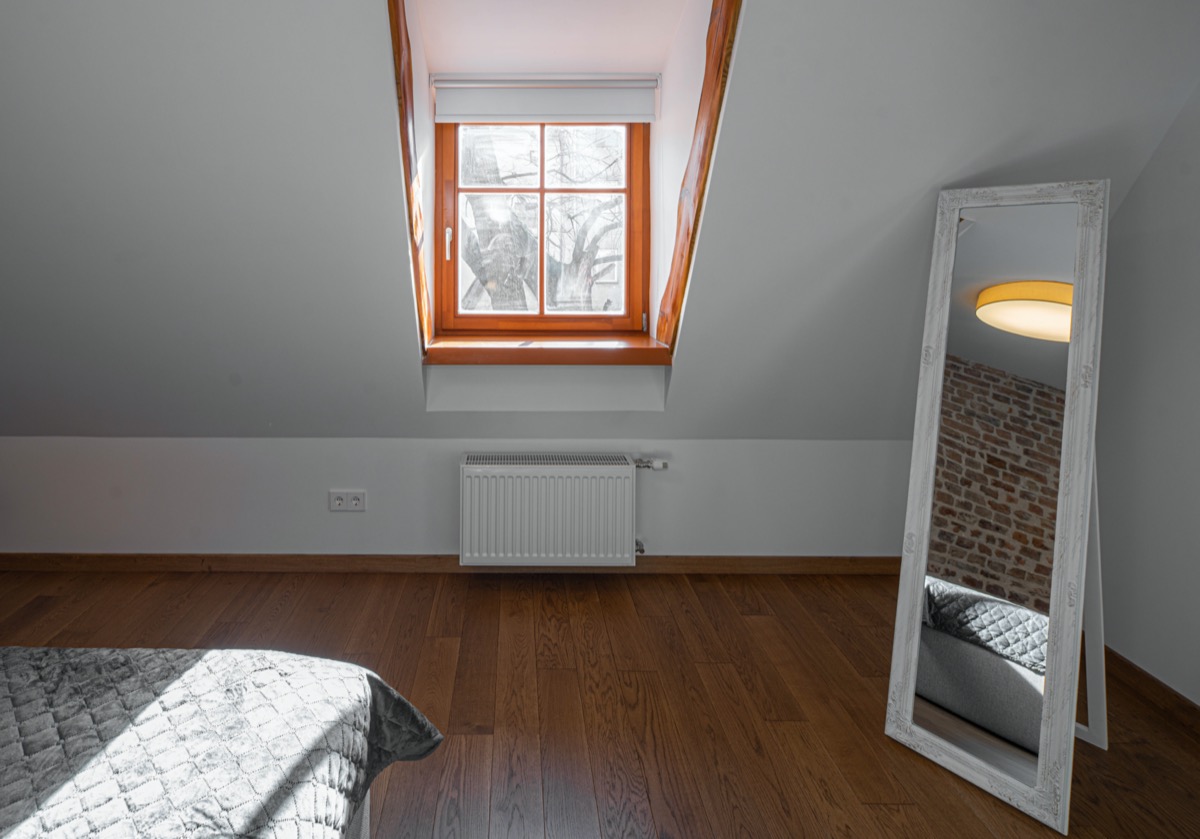
If your walls are perfectly even but your floors are so steep you could ski down them, it’s time to call in a foundation expert.
“If the ground was not properly compacted before the foundation was poured, the weight of building can cause settling resulting in cracks in the walls, or unsettled floors,” explains Taylor, who notes that this often becomes a problem in homes built on a slope. And if you want to keep your home in tip-top shape, it’s time to nix these 50 Ways You’re Ruining Your Home Without Realizing It.
5
Or they feel bouncy.
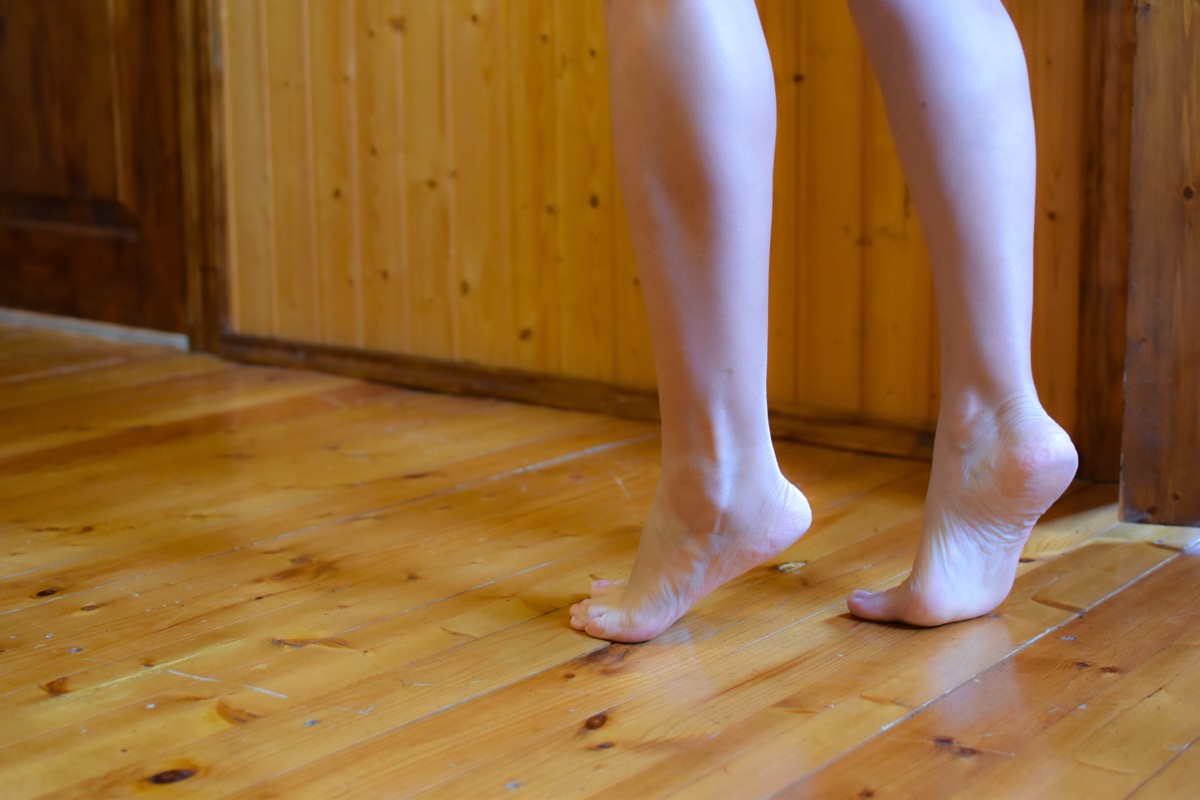
While having a spring in your step can be a good thing, if that spring comes from your floorboards, you’ve got a major problem. According to architect Evan L. Goldberg, soft and spongy floorboards are a telltale sign that you may have “severe termite damage to the structural floor joists.”
After contacting a pest control company to abate the problem, get in touch with a structural engineer to see if your house needs serious work to maintain its stability.
6
Your home has a damp smell.

That musty smell in your home isn’t just a sign that you need to clean more diligently. According to Taylor, that unpleasant odor could be a sign that mold is present in your home. His advice?
“Grab your toilet firmly and see if it rocks. If it rocks, you there might be water leaking from under your toilet, or you might be smelling sewer gases escaping,” he explains, noting that you’d be wise to call in a professional to help remedy the issue. Taylor also notes that leaks are often present under sinks and where exterior walls meet exterior dirt. And for more great information delivered right to your inbox, sign up for our daily newsletter.
7
Or you smell a gunpowder-like odor.
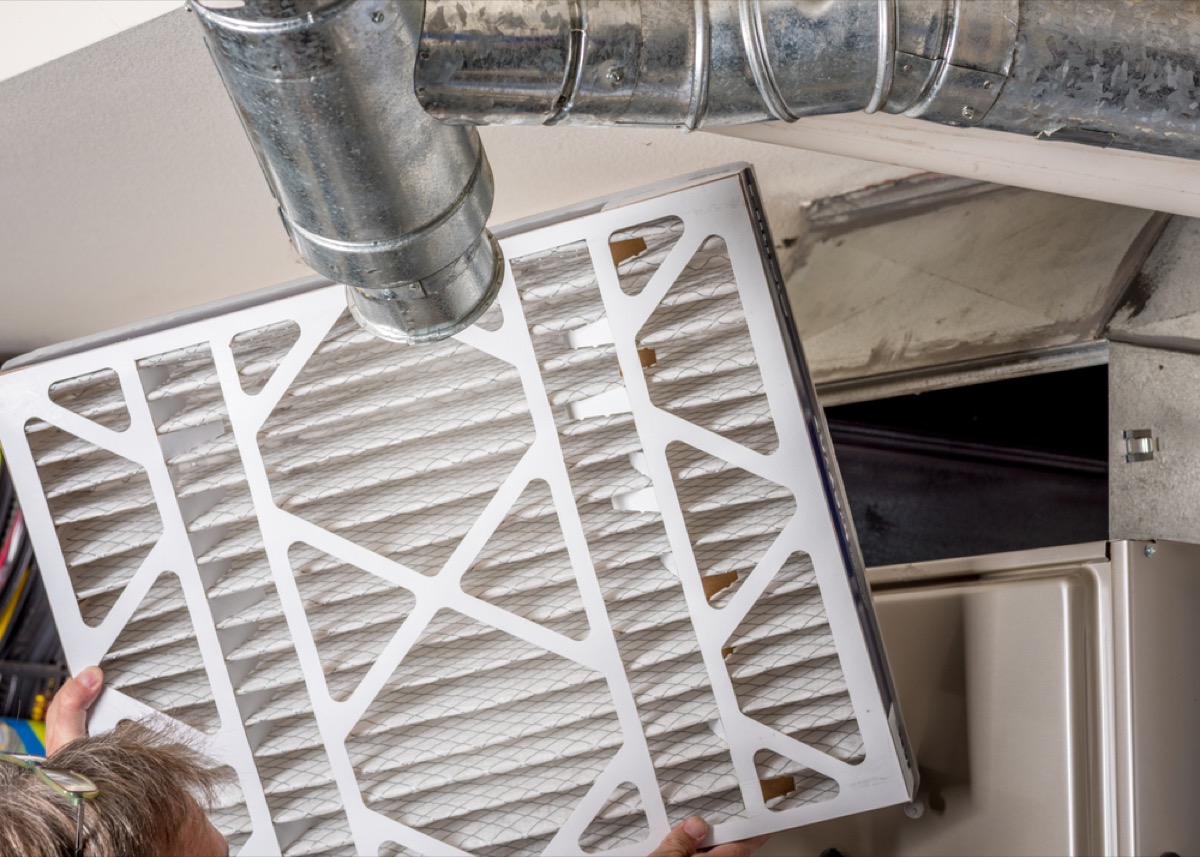
Unless you’re hosting regular duels, there’s no good reason for your home to smell like gunpowder—and if it does, it’s time to call an electrician or heating tech.
“A distinctive gunpowder-like aroma could result from a fried circuit board or fan motor” in your furnace, says Richard Ciresi, owner of Aire Serv in Louisville, Kentucky. Just make sure you get the issue looked at immediately, or you could be putting yourself at risk for a fire.
8
Your notice cracking paint around your doorways.
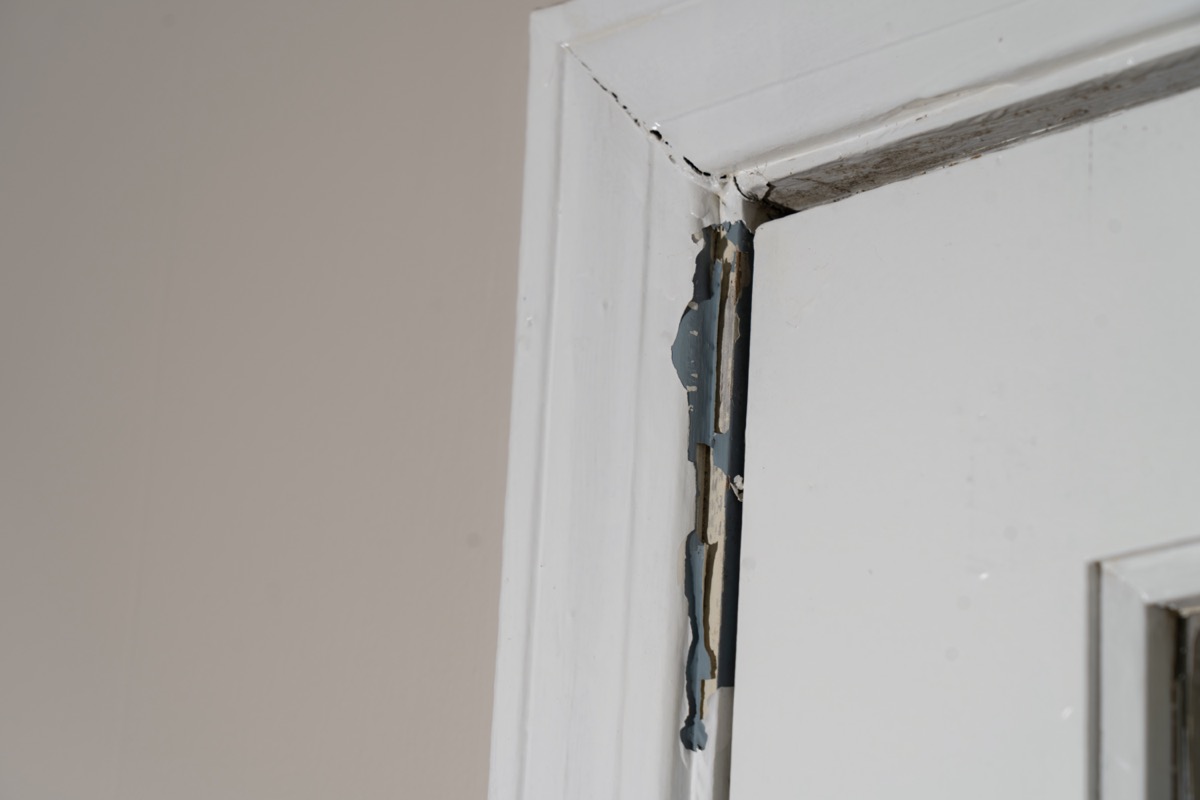
Cracking paint could be a sign that you didn’t thoroughly clean or prime your walls before you started painting. However, it could also be a sign that there’s moisture damage. Luckily, if you catch this issue in time, the fix doesn’t have to be labor-intensive.
“The solution could be as simple as installing new downspouts that move water farther away from your home’s foundation,” explains Eric Regan, owner of Mission Painting and Home Improvements.
9
Your paint is bubbling.
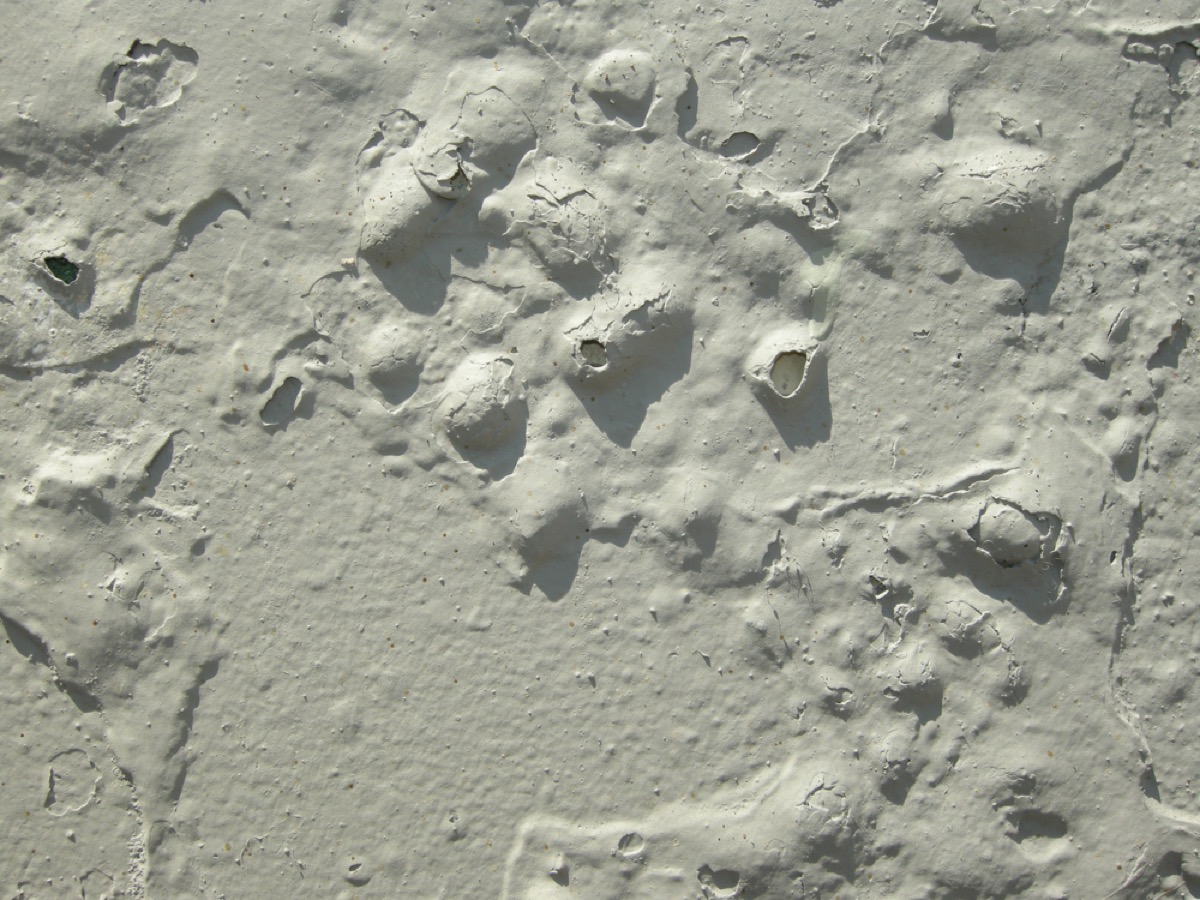
While you might chalk up that bubbling color on your walls to your less-than-professional painting skills, it could be a sign that you’ve got a problem with pests. According to Arrow Exterminators, paint that appears bubbly or has cracked could be a sign of a termite infestation.
After hiring an exterminator to remove the bugs, it’s important to keep shrubbery, tree branches, and firewood away from your home to reduce the likelihood of re-infestation. And if you want to avoid further damage, ditch these 23 Things in Your House Attracting Pests.
10
Or your bathroom paint is peeling.

That peeling bathroom paint is more than just a sign you should’ve shelled out the money for a better contractor. “When paint is peeling on the bathroom walls, there has been an untreated moisture problem for quite some time,” says Helling.
The good news? The addition of a bathroom fan can help mitigate the problem going forward. The bad news? Moisture issues can quickly devolve into mold issues, so get a professional to inspect as soon as you can.
11
Your air vents have spots around them.

While all air vents get dirty from time to time, seeing spots in the paint around those vents that can’t be easily removed may be an indication of a mold issue in your home. However, it’s not just repainting your home might require: “You may need to have your cooling system repaired,” explains Regan.
12
Or the ceiling below your bathroom has spots on it.
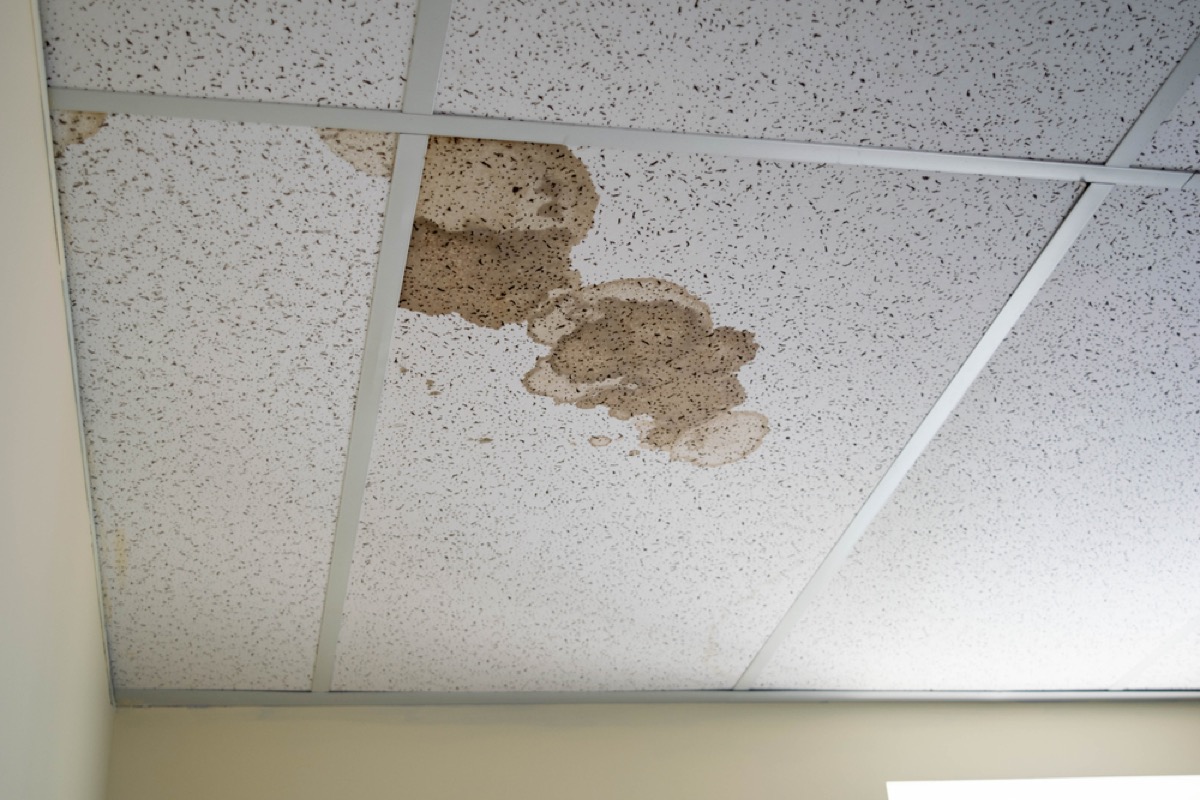
While many bathrooms develop some light mildew if they’re not properly ventilated, if you have spots all over your ceiling, it could point to bigger problems.
“Brown stains on a drywall ceiling are a telltale sign that there has been a water leak at some point,” says Andrew Helling, a Nebraska-licensed real estate agent and the owner of REthority.com. According to him, this discoloration is an indication of moldy drywall, especially if it appears below a bathroom or kitchen.
13
Your caulk has cracks in it.
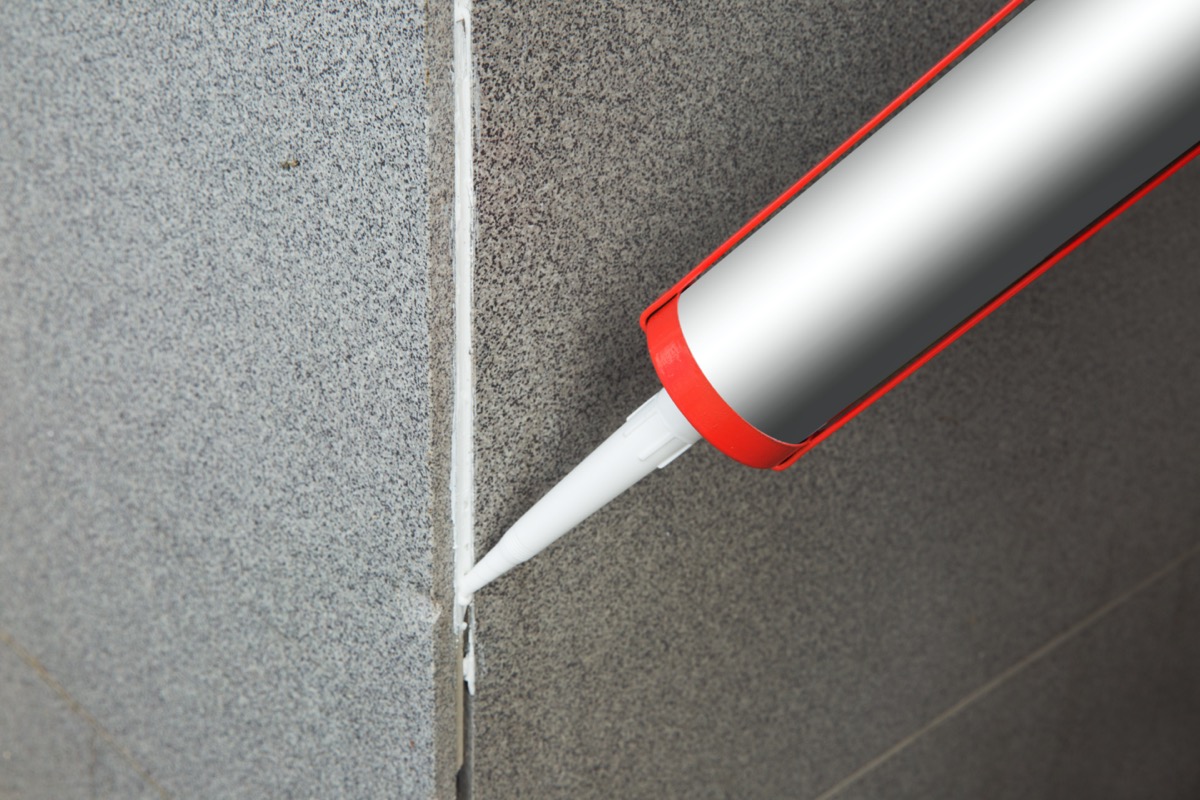
While caulk can shrink or shift over the course of many years, if the caulk on the exterior of your home is cracking, it’s time to call in the pros.
If you’re noticing cracked caulk between siding panels, it’s likely the sign of a moisture issue. “Think of [caulk] like a brand-new sponge that gets wet and expands,” says Regan. “When it expands with moisture, a simple fault in the integrity of the caulk can get dramatically worse as more water pours in.” And if you’re eager to update your space, start with these 15 Great Home Projects to Tackle While You’re Quarantined.
14
Your air conditioning has lost pressure.

Your air conditioner used to keep your home at a pleasant temperature no matter how hot it got outside, but now it’s barely cooling your home at all—what gives? According to Benjamin Ross, a real estate expert with Mission Real Estate Group in Texas, a loss of pressure in your vents is “a sign you have animals tearing into your AC ducting, either under the floor or in the attic” and need an exterminator.
15
Your cabinets have shifted.
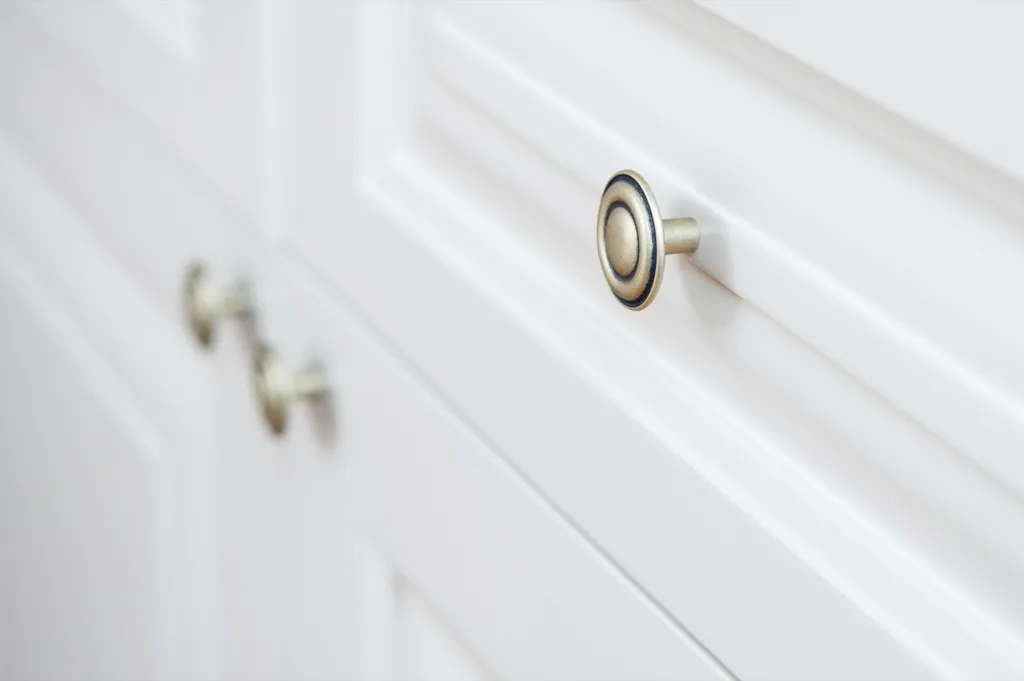
If those gorgeous cabinets you spent a pretty penny on are suddenly looking cockeyed, “that is a sign there is mold growing above,” says kitchen designer Lisa Fennessy of Kitchen Magic. However, that doesn’t mean you should immediately replace the cabinetry—instead, you’ll need to hire a mold remediation expert to fix the underlying issue or the problem will rear its ugly head once again.
16
Your doors and windows don’t open or close properly.
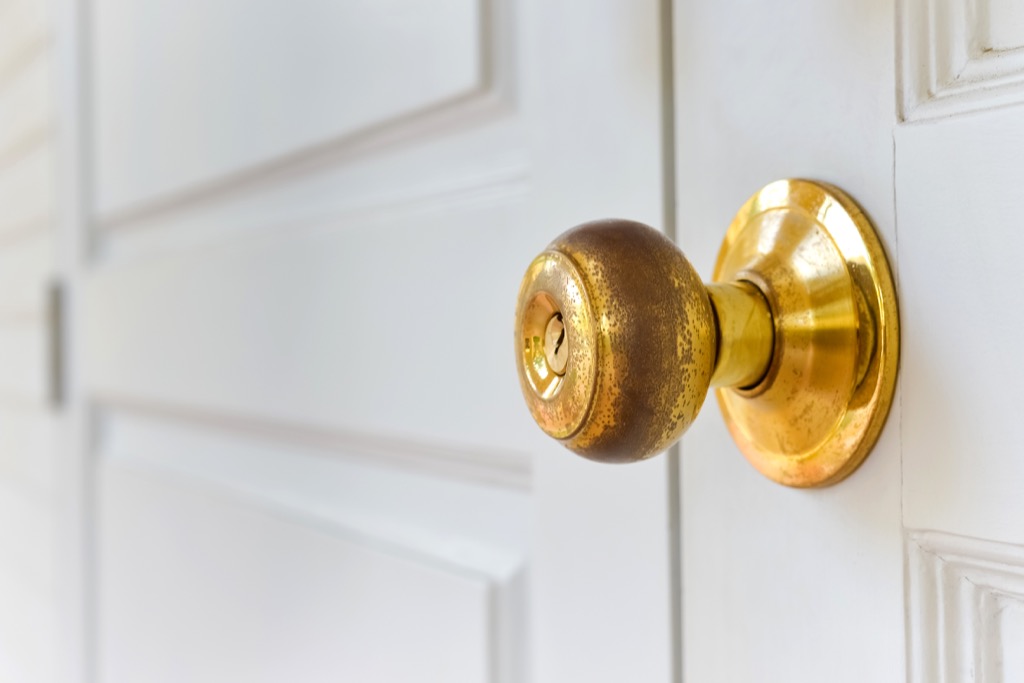
While all homes settle over time, which can cause changes in how the odd door or window fits in its frame, it shouldn’t be happening throughout your house. When this becomes an issue with multiple doors or windows, “it likely means that the support holding up the home’s foundation or the soil beneath a slab foundation is no longer strong enough to hold up the weight of the home,” says to Craig Russell, CEO of The English Contractor, a contracting and building firm in Cincinnati, Ohio.
Before the problem gets worse, it’s important to get a foundation expert to assess the level of damage.
17
Your plumbing has lost pressure.
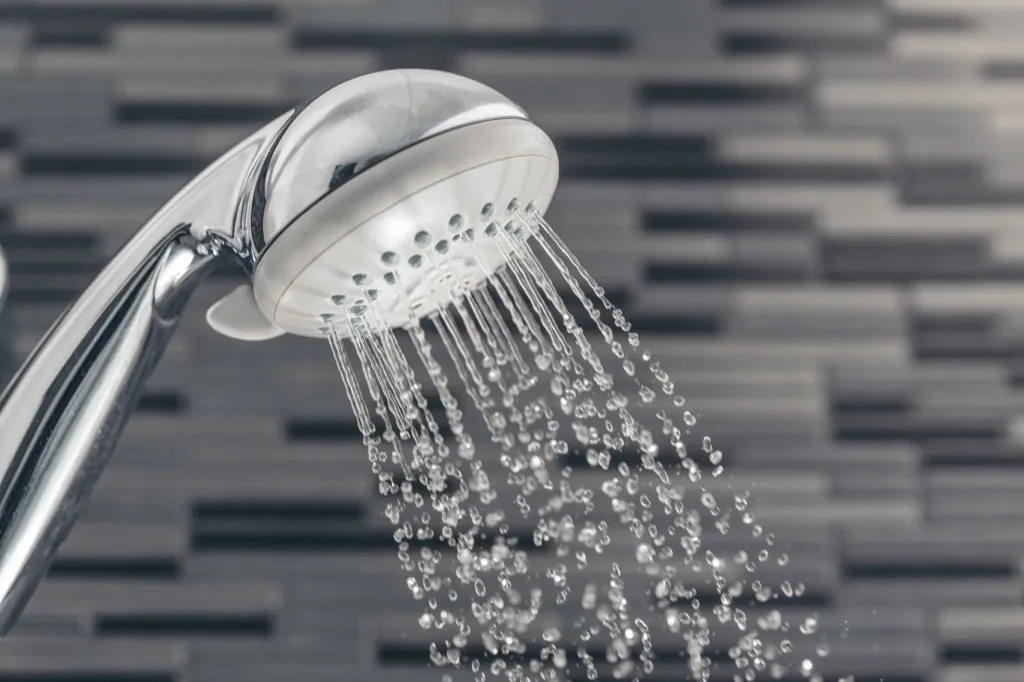
A low-pressure shower isn’t just un-fun for you—it’s pretty bad news for your house, as well. If you find that your water pressure is low, that could “be a sign of more serious plumbing issues lingering beneath the surface,” including leaks, says Doyle James, president of Mr. Rooter Plumbing, a Neighborly company.
18
Your faucets won’t stop dripping.

While a dripping sink isn’t exactly an uncommon occurrence, it could be a sign you have a bigger leak on your hands. And unfortunately, that “can add to your regular utility bill and also lead to expensive repairs,” says James.
19
There are stains underneath your windows.
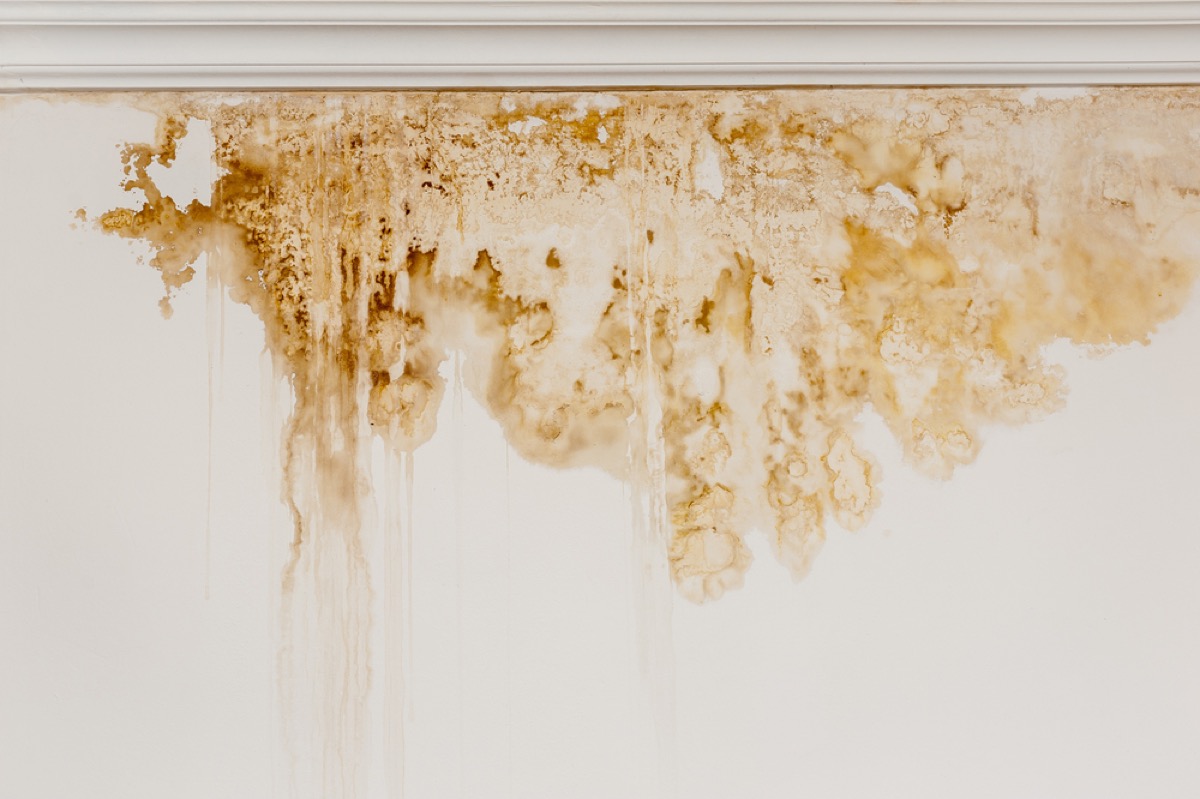
That discoloration underneath your window may seem like no big deal, but it could be a sign of serious water damage. These stains typically indicate that “water has infiltrated the connection of where a window meets the framing construction,” says Goldberg. It may even be a sign that there’s potentially harmful mold lurking behind your walls that needs remediation by a professional.
20
Or there are stains around the ceiling fan in your bathroom.
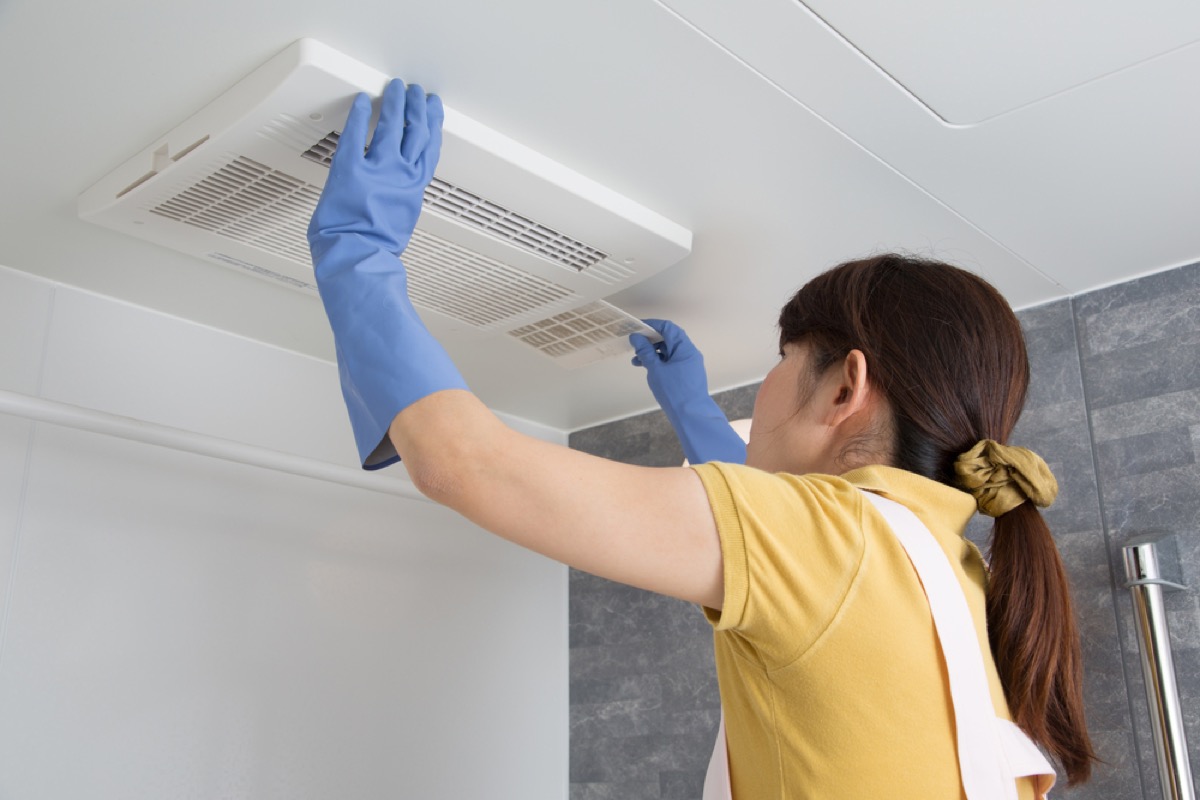
If your bathroom fan has a stain around it, don’t waste time getting it looked at. It’s likely the result of condensation that could be weakening the surrounding drywall and framing, according to Joe Murphy, an interior design specialist at The Shower Head Store. It can also point to a roof leak, so if having your fan re-insulated or replaced doesn’t solve the problem, it’s time to call a roofer.
21
You can see daylight or water coming through cracks in your foundation.
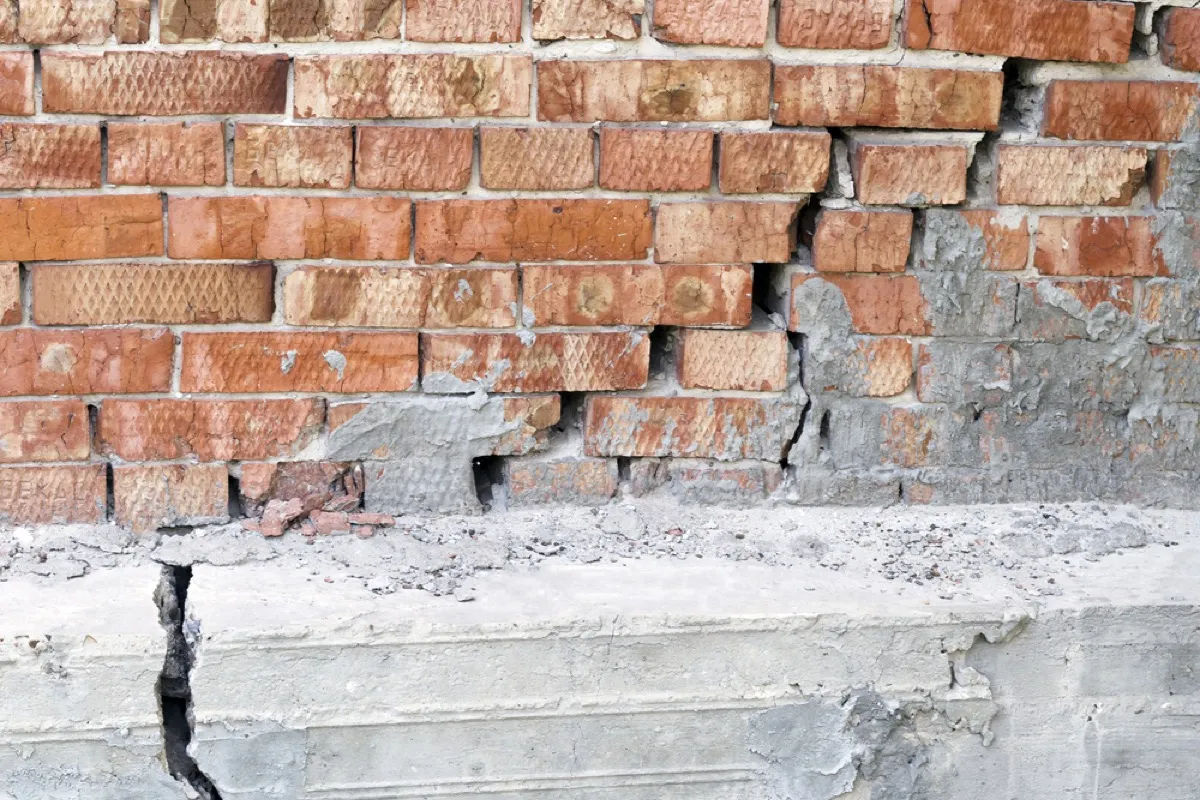
A little crack in your home’s foundation may be no big deal, but if you can see through to the other side of the crack—or if water is getting through, you’ve got a much bigger problem on your hands. “A larger crack that is gaping enough to allow water or daylight through can mean a more serious problem, like severe foundation shifting and/or water damage,” says Russell.
22
Your lights are flickering.

Before you call a paranormal specialist for those flickering lights, call an electrician. According to Helling, flickering lights are frequently a sign that there’s a short in your electrical wiring, which could also pose a fire risk if left unchecked.
23
There are gaps in your gutters.
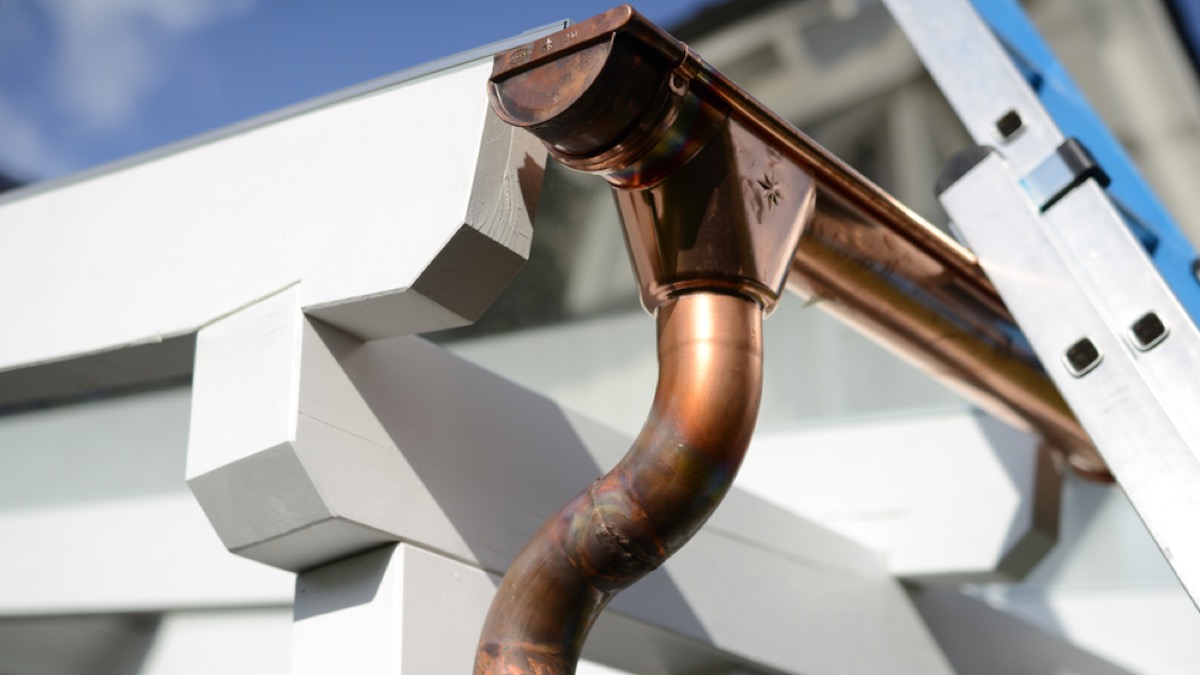
If your gutters aren’t lined up with the edge of your roof, you could have a major problem on your hands. “If you look up and see daylight between the gutter and roof, there is a gap, which will ultimately let water behind the gutter,” says Helling. Over time, this can lead to water behind your walls, in your attic, or in your basement, requiring expensive repairs or even mold remediation.
24
Your baseboards are separating.
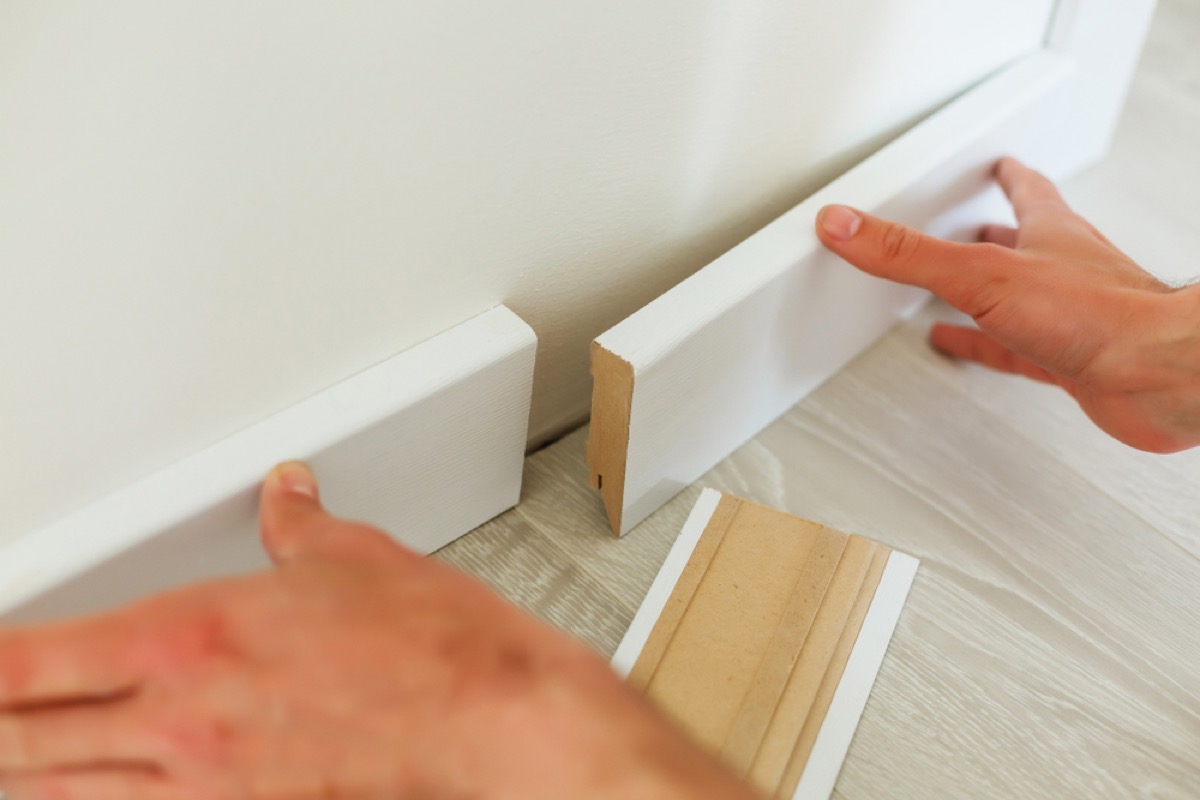
If your baseboards are moving away from your walls—or their adjoining pieces—you need a foundation expert stat. While this movement is often subtle at first, Alex Berezowski, the owner and general manager of The Foundation Experts Inc., says that it can indicate major foundation issues and shouldn’t be left unaddressed.
25
Your chimney is cracking.
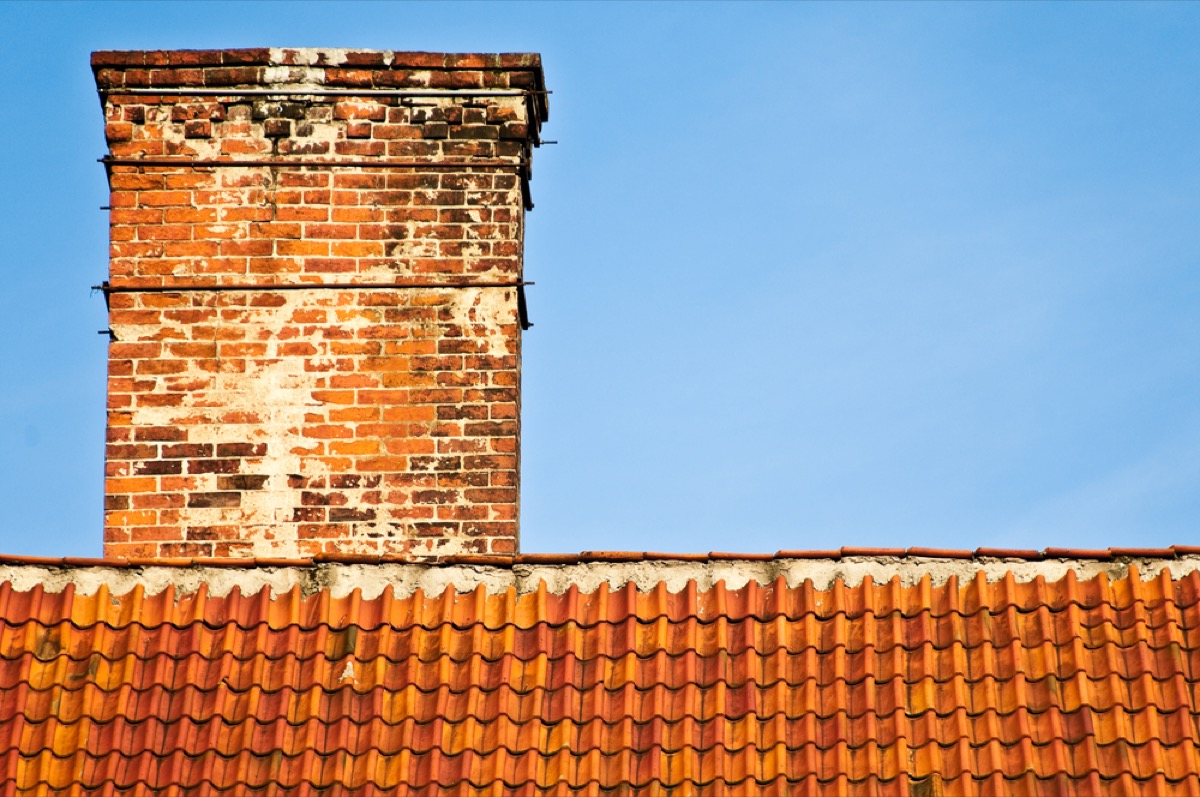
That crack in your chimney isn’t just your house’s way of telling Santa he needs to lose a few. According to Berezowski, cracks in chimneys are also signs that you have a serious foundation issue affecting the structure of your home. And if you want to know how much redoing your home could set you back, This Is How Much Common Renovations Actually Cost.